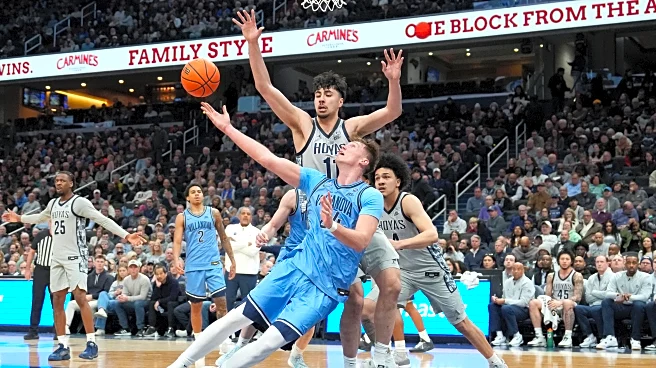What's Happening?
Pierre Gasly has committed to continue racing for Alpine in Formula 1, with a contract extension announced through the end of the 2028 season. Gasly, who joined Alpine ahead of the 2023 campaign, has faced challenges with an uncompetitive car during his tenure. The extension comes as Alpine undergoes significant management changes, including Flavio Briatore becoming the de facto team principal and Francois Provost replacing Luca de Meo as CEO of the Renault Group. The team is also transitioning to become a Mercedes customer for power units next season. Gasly's extension is seen as a stabilizing factor for Alpine, which has experienced continuous upheaval in recent years.
Why It's Important?
Gasly's contract extension is crucial for Alpine as it seeks stability amid ongoing management and operational changes. The decision to retain Gasly provides continuity ahead of the new regulatory era in 2026, which is vital for the team's strategic planning and competitiveness. Gasly has been a key asset, scoring all of Alpine's points this season despite the team's struggles in the constructors' standings. His commitment to Alpine reflects confidence in the team's long-term objectives to win races and championships, which is significant for the morale and future prospects of the team.
What's Next?
With Gasly's contract secured, Alpine will focus on addressing its competitive challenges and preparing for the new regulatory era in 2026. The team will need to finalize its driver lineup, as the future of the second seat remains uncertain. Additionally, Alpine will work on integrating Mercedes power units into its operations, which could impact performance and strategy. The management will likely continue to implement changes to enhance the team's competitiveness and achieve its long-term goals.
Beyond the Headlines
Gasly's extension highlights the importance of driver stability in Formula 1, especially for teams undergoing significant changes. It underscores the role of leadership and management in fostering a supportive environment for drivers, which can influence their performance and commitment. The decision also reflects the strategic importance of aligning driver contracts with regulatory changes, ensuring teams are well-positioned to adapt and compete effectively.












